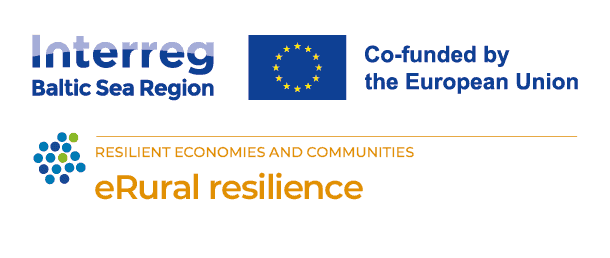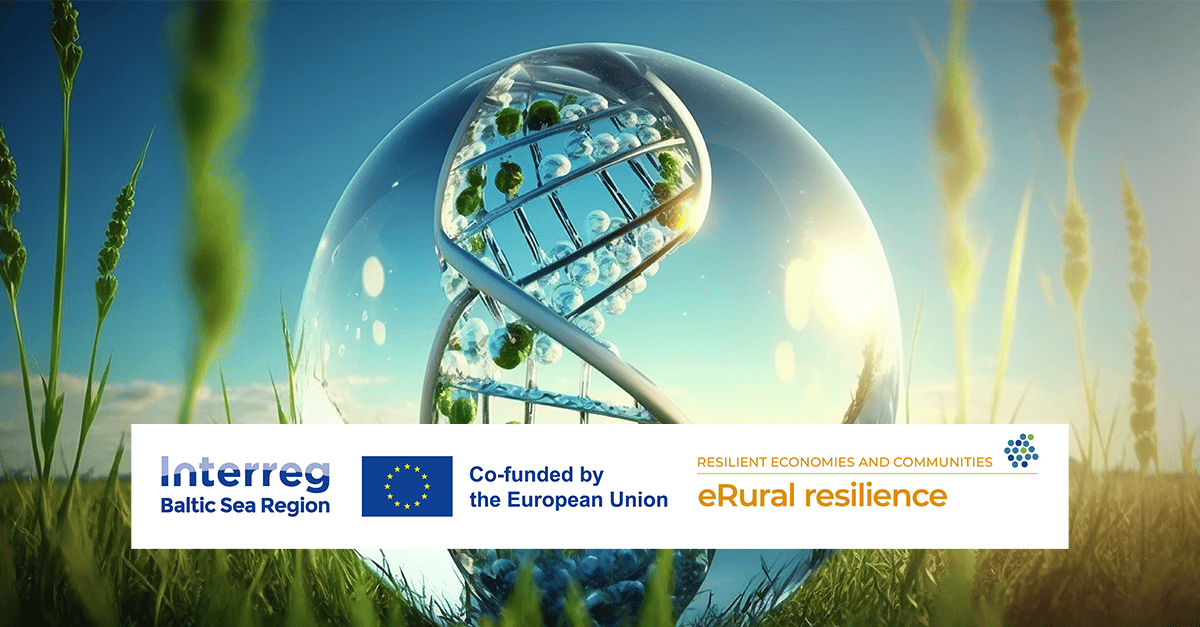
What steps to take towards a more sustainable rural area?
08 August 2024
 “Investing in the bioeconomy can help revitalize rural communities by stimulating local economic development, fostering innovation and entrepreneurship, and improving access to essential services such as healthcare and education. By empowering rural residents to participate in the bio-based value chain, policymakers can promote social inclusion, reduce rural depopulation, and enhance the overall quality of life in rural areas,” says Dorota Tekieli- Bisińska, Director of The Staropolska Chamber of Industry and Commerce
“Investing in the bioeconomy can help revitalize rural communities by stimulating local economic development, fostering innovation and entrepreneurship, and improving access to essential services such as healthcare and education. By empowering rural residents to participate in the bio-based value chain, policymakers can promote social inclusion, reduce rural depopulation, and enhance the overall quality of life in rural areas,” says Dorota Tekieli- Bisińska, Director of The Staropolska Chamber of Industry and Commerce
How can local governments support the transition to bioeconomy in rural areas to ensure sustainable economic growth?
In rural areas in most countries, local governments play a key role in promoting sustainable growth through the bioeconomy. Thanks to favorable policies, infrastructure development and financial support, local governments enable the development of rural areas through the use of bio-based products and processes.
- Clear regulations encourage the use of environmentally friendly practices in agriculture and forestry.
- Creating new jobs and providing access to finance helps farmers and entrepreneurs transition to production based on natural resources.
- Education plays a key role in this entire transformation process by organizing courses and workshops, equipping participants with the knowledge necessary to succeed in the new bio-economy. Cooperation of various institutions and partners promotes the development of the bioproducts market.
- Promoting the bioeconomy approach supports regional development and cohesion by empowering local communities and stimulating business initiatives. By leveraging natural resources and local knowledge, rural areas can create value-added products and increase their resilience to global market fluctuations.
Investing in the bioeconomy can help revitalize rural communities by stimulating local economic development, fostering innovation and entrepreneurship, and improving access to essential services such as healthcare and education. By empowering rural residents to participate in the bio-based value chain, policymakers can promote social inclusion, reduce rural depopulation, and enhance the overall quality of life in rural areas. All these activities must be implemented with respect for the environment, because nature protection should be as important to local governments as the development of rural areas. Creating a better future must ensure that the economy is compatible with caring for our planet.
What is the importance of the development of the bioeconomy sector for rural areas and for achieving the EU Green Deal?
The development of the bioeconomy sector is crucial for rural areas and aligns with the EU Green Deal’s goals. It offers economic diversification, sustainable resource management, and climate change mitigation. By promoting circular economy principles, it fosters rural development and social cohesion while supporting policy objectives for a greener, more resilient economy.
The bioeconomy offers rural areas a means to diversify their economies beyond traditional sectors like agriculture and forestry. The bioeconomy offers opportunities for economic diversification by leveraging renewable biological resources for the production of food, materials, energy, and other value-added products. By fostering bio-based industries such as bioenergy and biorefineries, rural communities can create new jobs and stimulate innovation. Important role in these activities and achieving EU Green Deal’s goals plays international cooperation, incl transnational Interreg cooperation and sharing best international practices.
May you give some examples how different activities or developments support the process?
The bioeconomy promotes sustainable resource management by emphasizing responsible use of biological resources. Practices like agroforestry, organic farming, and sustainable fisheries preserve biodiversity and contribute to climate change mitigation by sequestering carbon.
Moreover, the bioeconomy plays a vital role in combatting climate change by reducing greenhouse gas emissions. Biomass-derived bioenergy can replace fossil fuels, while sustainable land management practices enhance carbon storage in soils and vegetation.
The transformation towards bio-business contributes to the practical implementation of the circular economy, promoting resource efficiency and waste management. The increased use of solutions such as bio-based packaging and biodegradable materials contributes to reducing waste and promoting sustainable consumption and production.
What role do public-private partnerships play in fostering innovation (and investment) in bio-based industries within rural communities, and how can these partnerships be optimized for maximum benefit?
Public-private partnerships play a key role in supporting innovation and investment in bio-based industries in rural communities. These partnerships combine the resources, expertise and perspectives of both the public sector (government agencies, research institutions) and the private sector (enterprises, investors) to achieve common goals of sustainability, economic growth and technological progress. Such partnership projects contribute to supporting innovation and investment in bio-based industries in rural communities, along with strategies to optimize benefits through resource sharing, risk mitigation, technology transfer, market access and capacity building.
By adding value to locally produced goods through processing and marketing, rural communities can capture a larger share of the economic benefits within their own areas, reducing dependency on external markets and sources of income.
How do You see that the “eRural resilience” project supports rural bio-business innovation and enable rural resilience?
Bio-oriented activities and sharing international best-practices play a vital role in building resilience in rural areas by promoting sustainability, diversification, empowerment, and cultural preservation while addressing key challenges such as food security, environmental degradation, and economic instability. Increasing awareness and involving all social groups in building local initiatives has a huge impact on the stability of rural areas and their resilience.
Therefore, it is so important to strengthen the position of the local community by promoting bio business initiatives because the nature of these activities usually requires the involvement of local residents in the decision-making and implementation processes. Strong community engagement increases social cohesion and collective action, which are essential for strengthening resilience to challenges.
To promote bio-business innovation in rural areas and ensure resilience, especially in less developed regions, transnational Interreg cooperation via the „eRural resilience” project offers tailor-made activities:
- Promoting entrepreneurship by encouraging the local community to look for ideas for their own business and inspiring them through mentoring and access to good practices of bio-enterprise owners. Building a supportive ecosystem that enables individuals to start and maintain their projects based on bio-based solutions.
- sharing knowledge and best practices, as EU projects often involve cooperation between multiple countries and stakeholders, facilitating the exchange of knowledge, experiences and best practices in the field of the bioeconomy. This knowledge sharing can help rural areas to access valuable information and learn from successful initiatives implemented elsewhere in Europe.
- capacity building and training to strengthen the skills and capabilities of all rural stakeholders. Training programs focused on sustainable agriculture, renewable energy production and building a bio-business model can help rural communities take advantage of the opportunities offered by the bioeconomy.
- enabling networking and collaboration between stakeholders from different regions and sectors, creating partnerships and synergies that drive innovation and the development of the rural bioeconomy. An extremely important factor is also facilitating access of rural communities to key industrial entities, research institutions and political decision-makers in order to build the development potential of the bioeconomy.
- facilitate access to finance by raising awareness of the various EU funding programs and initiatives to support research, innovation and infrastructure development in the bioeconomy sector.
- promoting EU-funded demonstration projects that demonstrate innovative bioeconomy technologies and practices, providing practical examples of how rural areas can transition to a more sustainable economic model.
- Internationalization and access to new markets by supporting rural enterprises to access markets and expand.






